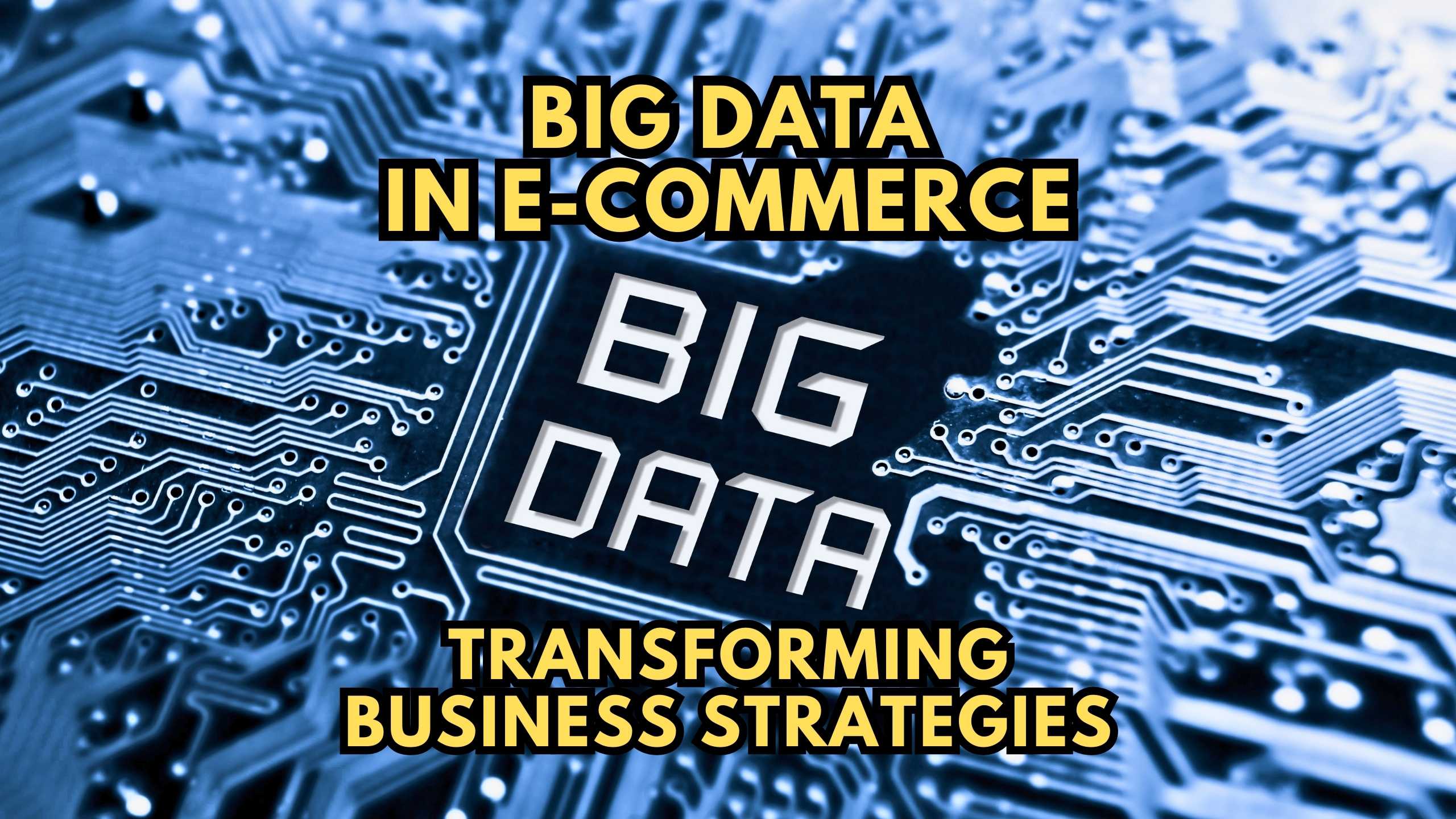Big Data in E-commerce: Transforming Business Strategies
- Data as a Service (DaaS) Software Marketing & Analytics


Big Data in E-commerce: Transforming Business Strategies
In the dynamic landscape of e-commerce, leveraging big data has become a game-changer, revolutionizing how businesses operate, engage customers, and make strategic decisions. Let’s delve into the intricate ways in which e-commerce is harnessing the power of big data to enhance its overall performance.
1. Customer Behavior Analysis
Big data analytics in e-commerce allows businesses to dissect customer behavior on a granular level. By analyzing browsing patterns, purchase histories, and preferences, e-commerce platforms can create personalized shopping experiences. This tailored approach not only boosts customer satisfaction but also increases the likelihood of conversions.
2. Predictive Analytics
One of the significant advantages of big data in e-commerce is its ability to predict future trends and demands. By crunching vast amounts of data, businesses can forecast which products are likely to be in demand, optimize inventory management, and stay ahead of market trends. This proactive strategy minimizes stockouts, maximizes sales, and keeps customers satisfied.
3. Dynamic Pricing Strategies
Big data enables e-commerce platforms to implement dynamic pricing strategies. By considering various factors such as competitor pricing, demand fluctuations, and customer behavior, businesses can adjust prices in real-time. This agility allows for optimal pricing structures, maximizing revenue while ensuring competitiveness in the market.
4. Fraud Detection and Prevention
E-commerce faces constant threats of fraudulent activities. Big data analytics provides robust tools for detecting unusual patterns and behaviors that may indicate fraudulent transactions. By identifying anomalies in real-time, businesses can implement preventive measures, ensuring the security of customer transactions and maintaining trust.
5. Personalized Marketing Campaigns
Big data empowers e-commerce marketers to create highly targeted and personalized campaigns. By understanding customer preferences and behaviors, businesses can tailor marketing messages, recommend products, and optimize the timing of promotions. This precision in marketing efforts enhances customer engagement and increases the effectiveness of promotional campaigns.
Relevant SaaS Products:
- Google Analytics: A powerful web analytics service that provides detailed insights into website traffic, helping e-commerce businesses track user behavior and make data-driven decisions.
- Tableau: A data visualization platform that allows e-commerce businesses to create interactive and shareable dashboards, facilitating in-depth analysis of big data for strategic decision-making.
- Looker: A business intelligence and data exploration platform that empowers e-commerce companies to explore and understand their data, enabling more informed and strategic decisions.
- Snowflake: A cloud data platform that supports seamless data warehousing and analytics, enabling e-commerce businesses to manage and analyze vast amounts of data efficiently.
- Optimizely: A platform that facilitates A/B testing and experimentation, allowing e-commerce businesses to optimize their websites based on customer behavior and preferences.
Conclusion
In conclusion, the integration of big data in e-commerce has transformative effects on various aspects of business operations. From understanding customer behavior to predicting market trends, optimizing pricing strategies, and enhancing security, big data has become an indispensable tool for e-commerce success.
Harness the Power of Big Data with Subscribed.fyi!
Ready to unlock the full potential of big data in your e-commerce strategy? Subscribed.fyi is your go-to platform for understanding, comparing, and managing your SaaS stack. Sign up for free today and access exclusive deals on essential tools that can supercharge your big data initiatives. Your journey to data-driven success starts now!
Relevant Links:








